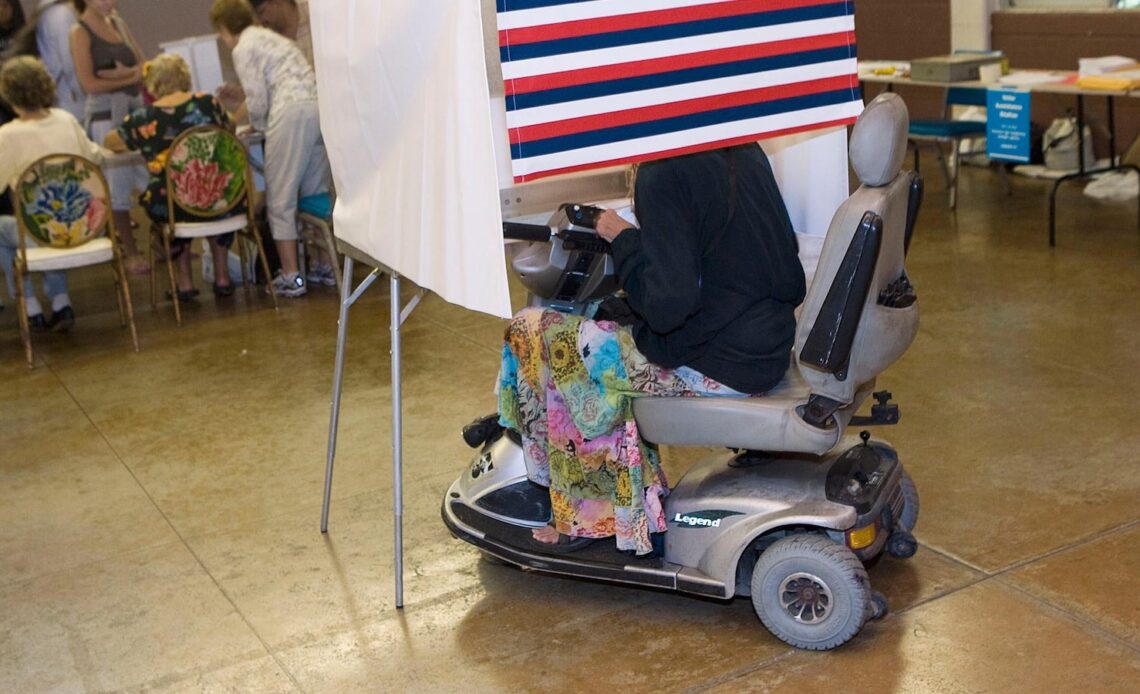A new report from Rutgers University estimates that about 40.2 million eligible voters in the quickly approaching U.S. presidential election are disabled. Add those who cohabitate with people who have a disability, and you’re looking at close to one-third of the voting population for an election in which health care is among the key campaign issues.
The disabled voting bloc is growing as the U.S. population ages, but voters and advocates say the hurdles that make people feel excluded from the electoral process aren’t being addressed. That ranges from inaccessible campaign materials to former President Donald Trump and Vice President Kamala Harris seldomly mentioning how issues like COVID-19 impact the disability community, as well as Trump making a statement at a rally last month that advocacy groups considered discriminatory.
“They should be treating us like we’re their path to victory because we are, frankly,” said Dom Kelly, the founder and CEO of New Disabled South, an advocacy group that focuses on disability rights in the South. “You win or lose because of disabled people, and if you don’t take our community seriously, that will reflect on the outcome of your campaign.”
Lisa Schur and her husband Doug Kruse lead the Program for Disabilities Research at Rutgers and co-wrote the new report, which also shows there are 7.1 million disabled voters in the battleground states of Arizona, Georgia, Michigan, Nevada, North Carolina, Pennsylvania and Wisconsin.
Schur said that disabled people are less likely to receive information about politics and can face numerous difficulties when voting in-person and by mail. All of it can lead to less participation.
“It’s kind of like death by a thousand cuts,” Schur said.
Matt Mills is a former Trump supporter and avid voter. The 41-year-old from Brown County in southern Ohio has lupus, polyneuropathy and received two kidney transplants since 2017.
This year, he’ll be voting for Harris because of her “proven track record” of advocating for health care policies he likes. Even so, he believes voters with disabilities are taken for granted.
“When we don’t see ourselves represented,” he said, “then we continue to get beat down and we get tired and we get discouraged.”
Jim Piet and Patricia Vincent-Piet of Concord, New Hampshire, both have cerebral palsy. The married couple say they’ve been dismissed by political candidates over the years when they try to talk with them — but also have…
Click Here to Read the Full Original Article at ABC News: Health…

